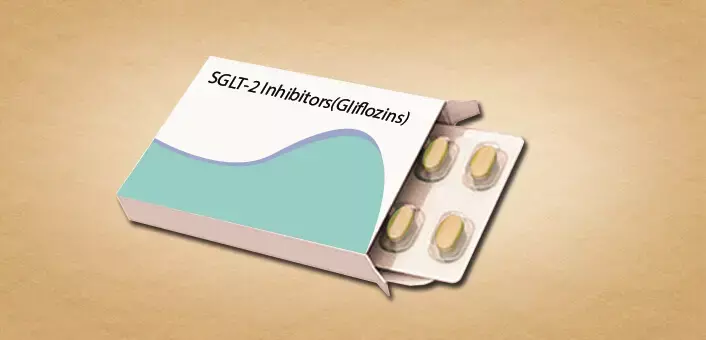- Home
- Medical news & Guidelines
- Anesthesiology
- Cardiology and CTVS
- Critical Care
- Dentistry
- Dermatology
- Diabetes and Endocrinology
- ENT
- Gastroenterology
- Medicine
- Nephrology
- Neurology
- Obstretics-Gynaecology
- Oncology
- Ophthalmology
- Orthopaedics
- Pediatrics-Neonatology
- Psychiatry
- Pulmonology
- Radiology
- Surgery
- Urology
- Laboratory Medicine
- Diet
- Nursing
- Paramedical
- Physiotherapy
- Health news
- Fact Check
- Bone Health Fact Check
- Brain Health Fact Check
- Cancer Related Fact Check
- Child Care Fact Check
- Dental and oral health fact check
- Diabetes and metabolic health fact check
- Diet and Nutrition Fact Check
- Eye and ENT Care Fact Check
- Fitness fact check
- Gut health fact check
- Heart health fact check
- Kidney health fact check
- Medical education fact check
- Men's health fact check
- Respiratory fact check
- Skin and hair care fact check
- Vaccine and Immunization fact check
- Women's health fact check
- AYUSH
- State News
- Andaman and Nicobar Islands
- Andhra Pradesh
- Arunachal Pradesh
- Assam
- Bihar
- Chandigarh
- Chattisgarh
- Dadra and Nagar Haveli
- Daman and Diu
- Delhi
- Goa
- Gujarat
- Haryana
- Himachal Pradesh
- Jammu & Kashmir
- Jharkhand
- Karnataka
- Kerala
- Ladakh
- Lakshadweep
- Madhya Pradesh
- Maharashtra
- Manipur
- Meghalaya
- Mizoram
- Nagaland
- Odisha
- Puducherry
- Punjab
- Rajasthan
- Sikkim
- Tamil Nadu
- Telangana
- Tripura
- Uttar Pradesh
- Uttrakhand
- West Bengal
- Medical Education
- Industry
Dual or single SGLT inhibition: which is more beneficial for type 2 diabetes? Study sheds light

In type 2 diabetes patients, the study did not indicate different clinical impacts of dual and single SGLT inhibition.
Germany: Inhibition of sodium-glucose cotransporters (SGLTs) improves cardiovascular and glycemic outcomes in type 2 diabetes (T2D) patients. Niklas Walther, Charité Research Organisation GmbH, Berlin, Germany, and colleagues investigated the differential impact of selective SGLT2 inhibition (empagliflozin) and dual SGLT1 and SGLT2 inhibition (sotagliflozin) on multiple parameters.
Based on their study, published in Diabetes Care, the research team did not find any significant differences between sotagliflozin and empagliflozin concerning overall BP and glycemic control or selected urinary, metabolic, and intestinal parameters.
SGLT2 inhibition is an established approach for blood sugar control in type 2 diabetes patients. It also reduces heart failure and major cardiovascular adverse events in patients irrespective of their diabetic status. SGLT2 is majorly expressed in the kidney, where its inhibition results in marked natriuresis and glycosuria, whereas SGLT1 is mainly present in the gastrointestinal tract, where it can exhibit the main effect of glucose inhibition.
SGLT1 and SGLT2 dual inhibition could offer additional advantages, at least for lowering blood glucose, yet the knowledge of the extent of any other pharmacodynamic effects remains incomplete. Sotagliflozin is a dual l SGLT1 and SGLT2 inhibitor approved in the European Union as an adjunct therapy to insulin in type 1 diabetes patients with a BMI ≥27 kg/m2.
The study included 40 patients with T2D and hypertension. Using a double-blind, parallel-group design, they were randomized to receive the selective SGLT2 inhibitor empagliflozin 25 mg or the dual SGLT1 and SGLT2 inhibitor sotagliflozin 400 mg, with preexisting antihypertensive treatment, for eight weeks. In an in-house testing test, many clinical and laboratory tests were used to determine intestinal, metabolic, urinary, and cardiovascular parameters over 24h.
The study led to the following findings:
- Changes from baseline in blood pressure and glycemic control, intestinal, urine, metabolic parameters, and cardiovascular biomarkers were generally similar to sotagliflozin and empagliflozin.
- During breakfast, MMTT, sotagliflozin significantly reduced total area under the curve (AUC) values for insulin, postprandial glucose, and glucose-dependent insulinotropic polypeptide (GIP) and remarkably increased incremental AUCs for postprandial glucagon-like peptide 1 (GLP-1) relative to empagliflozin, consistent with sotagliflozin-mediated inhibition of intestinal SGLT1. During lunch and dinner MMTTs, these changes waned.
- Significantly lowering of GIP incremental AUCs relative to baseline over the 14 h MMTT interval was seen with both treatments; the most vigorous effect was seen with sotagliflozin soon after the start of the day's first meal.
- No severe adverse events were observed.
"Changes from baseline in blood pressure and glycemic control, cardiovascular biomarkers, and other parameters were similar between sotagliflozin and empagliflozin," the researchers wrote in their study. "However, sotagliflozin inhibited intestinal SGLT1 after breakfast as shown by larger changes in insulin, GIP, postprandial glucose, and GLP-1 AUCs, especially after breakfast."
Reference:
Maximilian G. Posch, Niklas Walther, Ele Ferrannini, David R. Powell, Phillip Banks, Suman Wason, Raphael Dahmen; Metabolic, Intestinal, and Cardiovascular Effects of Sotagliflozin Compared With Empagliflozin in Patients With Type 2 Diabetes: A Randomized, Double-Blind Study. Diabetes Care 1 September 2022; 45 (9): 2118–2126. https://doi.org/10.2337/dc21-2166
Dr Kamal Kant Kohli-MBBS, DTCD- a chest specialist with more than 30 years of practice and a flair for writing clinical articles, Dr Kamal Kant Kohli joined Medical Dialogues as a Chief Editor of Medical News. Besides writing articles, as an editor, he proofreads and verifies all the medical content published on Medical Dialogues including those coming from journals, studies,medical conferences,guidelines etc. Email: drkohli@medicaldialogues.in. Contact no. 011-43720751


